Things You Need To Remember Before Donating Blood
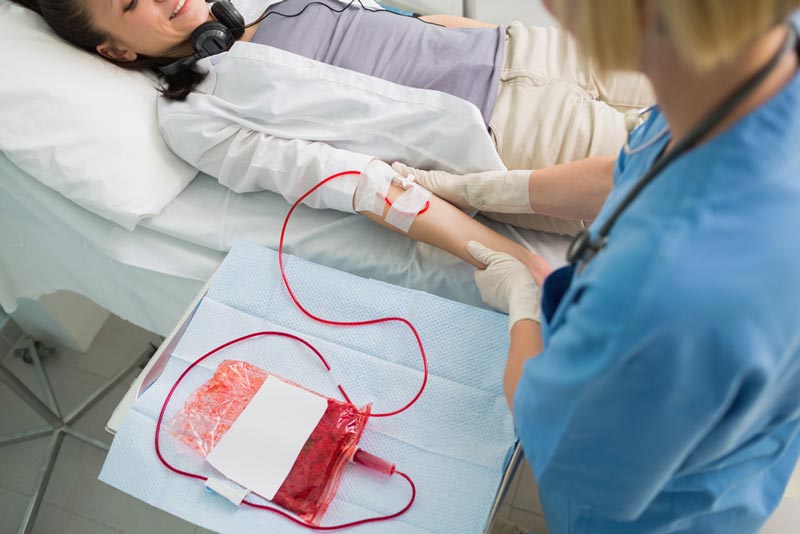
Your Blood Could Sava A Life So, Make A Difference And Donate Blood Today!
Indeed, blood donation is one of the noble deed as well as a selfless thing an individual can offer to society. Many blood donation events and camps are conducted by hospitals and NGOs. You must have noticed that many people are always ready to donate blood. Not only that by donating your blood, another person can get a new life, but when the time comes, your blood requirement can be fulfilled too. We should keep donating blood after every 3 or 6 months.
Many people may face problems such as dizziness or vomiting after donating blood. Some people believe that donating blood can cause weakness in the body. But this is not true because the blood is restored much quickly into your body and doesn’t cause any health issues. But few things you need to remember before donating blood as this noble deed can save the lives of many people.
1. Check Your Eligibility Criteria
You just cannot decide on donating blood overnight. First, evaluate yourself properly. You have to be healthy, fit and need to be free from any illness.
Following things are must if you have to donate blood:-
- People in the age group of 18 to 60 who are completely healthy. They can donate 450 ml of blood.
- Weight more than 50 kg
- The haemoglobin content should be 12.5 mg%
- There should be a minimum gap of 3 months between 2 successive blood donations.
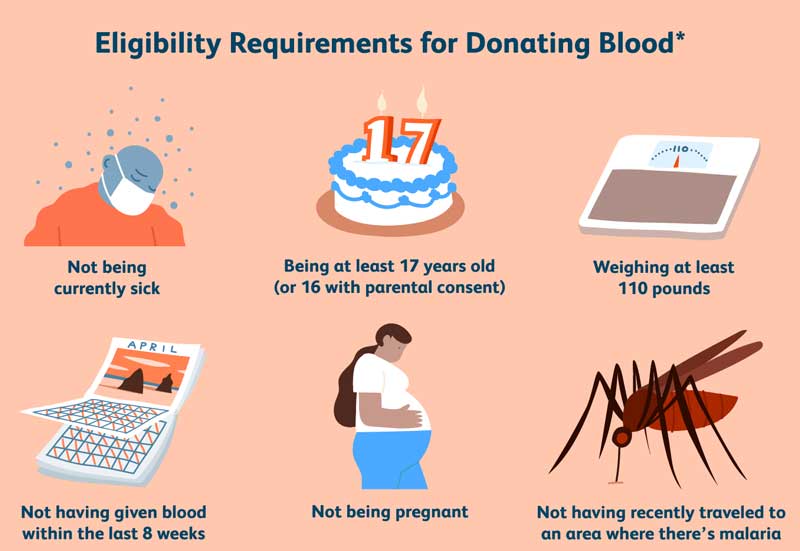
You cannot donate blood when
- You have a cold, sore throat, cough, virus or an upset stomach.
- You have done dental work within 24 hours or a major dental work in the past month, as bacteria can get into the bloodstream and cause infection.
- If you are patient of High BP and diabetes.
- Kidney disease patients.
- Women cannot donate blood for 6 months of miscarriage.
- Malaria patients cannot donate blood for 3-4 months.
2. Donate at Licensed Blood Bank
There are several blood donation camps are conducted every week at various places. If you want to donate blood you must check the credentials of the camp. Always choose a licensed blood bank. Because at trusted blood bank or hospital all essential procedures are followed and they carefully collect blood.
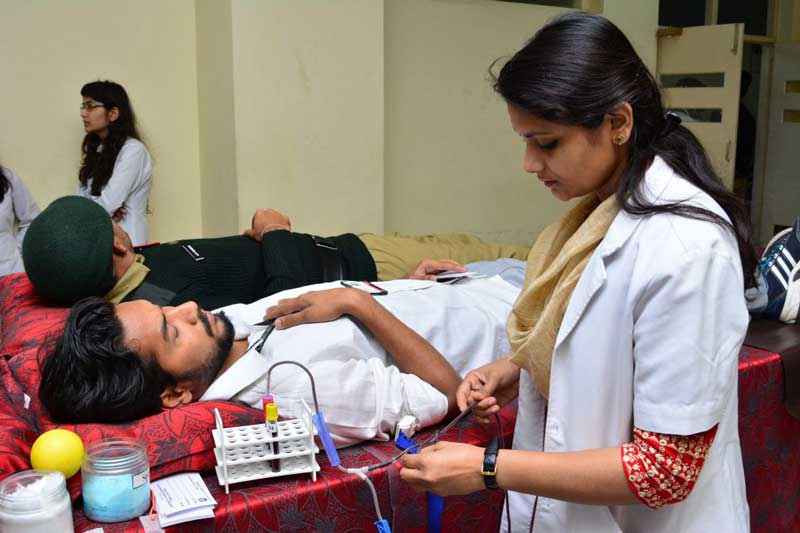
They will properly guide you on how to donate blood properly. Well, blood donation is done always in a seated or lying position and is done by trained healthcare experts. A sterile needle is inserted in the elbow for 8-10 minutes for 350-450 ml of blood. Post this, the blood is collected in sample tubes.
3. Maintain Healthy Iron Levels
Before you come to donate, make sure you’ve eaten a healthy meal. When you want to donate blood, it’s crucial to keep an iron-rich diet. Red meat, fish, poultry, beans and spinach are fantastic sources of iron. Keep these foods in your diet leading up to your donation. Eating too many fatty foods before donation can increase the cholesterol level in blood then it cannot be used for transfusions. The fat in your blood can prevent testing for contagious diseases, which is necessary before using the blood for transfusion.
4. Go For Health Check-up Before Donation: –
Self-evaluation for eligibility and health check-up by a health professional are two different things. The health experts will check you on several aspects such as weight, haemoglobin levels, blood pressure and medical history.
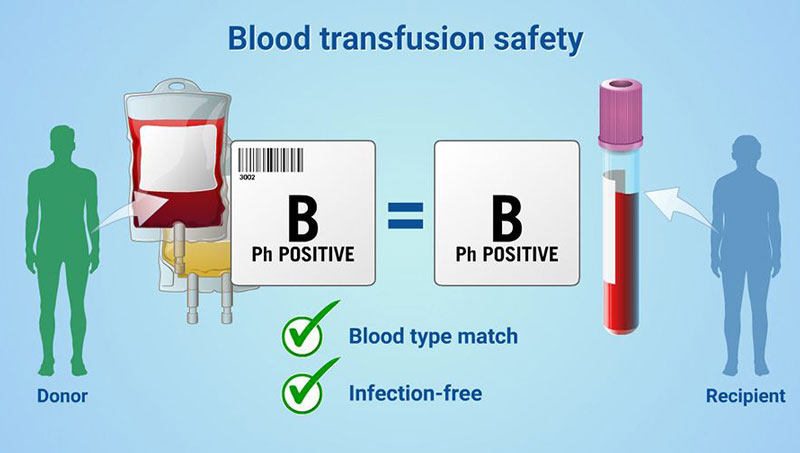
The blood is checked for Hepatitis B, Hepatitis C, Syphilis, Malaria, Dengue and HIV type 1 and type 2. If you are found positive for any of these then your blood will be rejected.
5. Do not Smoke or Consume Alcohol
Remember, do not smoke and do not consume alcohol 24 hours before donating blood. Also, avoid chewing gum, candy and mints because it may seem like you have a fever and are unfit for blood donation.
6. Don’t Go Empty Stomach
Snacks and drinks are offered for those who’ve just finished donating blood. Don’t pass this up! You’ll feel much better after you get some food and fluid in your system. Eating right a light snack right afterwards can prevent donors from passing out. Before going for blood donation, make sure you are not an empty stomach. Usually, people feel dizzy and can even faint. You can have weakness in the body and may feel like vomiting.

If you have taken an appointment for blood donation in advance then it is recommended to eat iron-rich food such as fish, meat, grains and beans because iron-rich food increases blood production. Keep yourself hydrated with the intake of plenty of water and fruit juices a day before blood donation.
Also Read: Iron & Hemoglobin In Our Diet
7. Avoid Heavy Exercise After Blood Donation
It may take 10 – 15 minutes for the entire procedure. Soon after this, you will feel dizzy and hence you are advised to not indulge in physical activities like exercising. Dizziness and light head are common after donating blood. Avoid lifting heavy objects or exerting too much energy for the remainder of the day. If you do start to feel lightheaded, sit or lie down immediately, let your eyes close and rest until you’re feeling better!
8. Arm bandage
Post blood donation, a small bandage is put on the area from where blood has been extracted. Keep the bandage on your arms for at least two-four hours. If your arm starts bleeding then raise the arm above the head and apply pressure until it stops. If hurting continues then apply a cold pack to the area regularly during the first 24 hours or gives ice massages slowly.
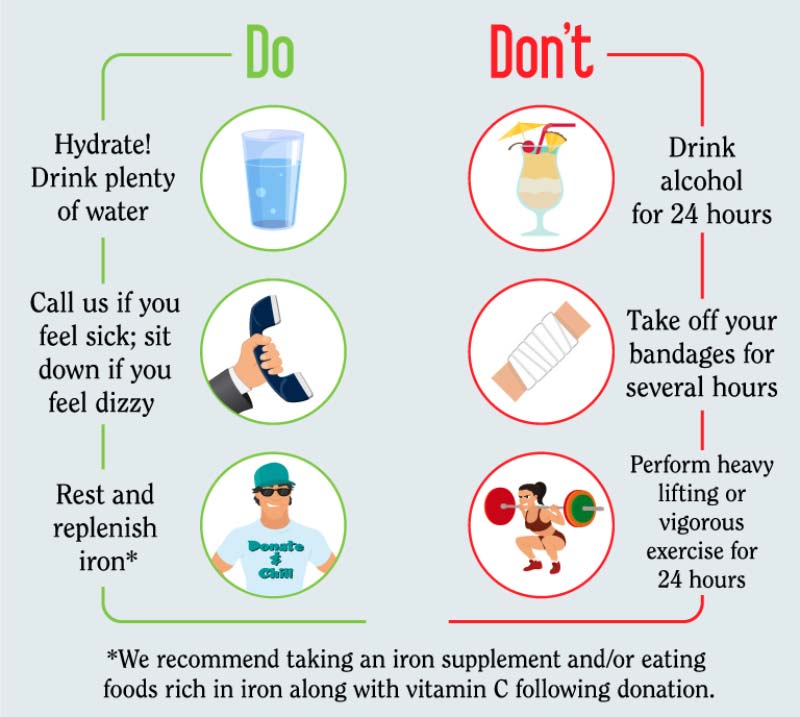
If your arm is hurting or paining then take a pain reliever such as acetaminophen. Even though if you are not feeling well then without wasting time consult doctor at the donation centre.
Remember, blood donation is a service to mankind. It will cost you nothing but it will save a life.
Also Read: Everything You Should Know About Iron Deficiency: Its Causes, Symptoms & Treatment









